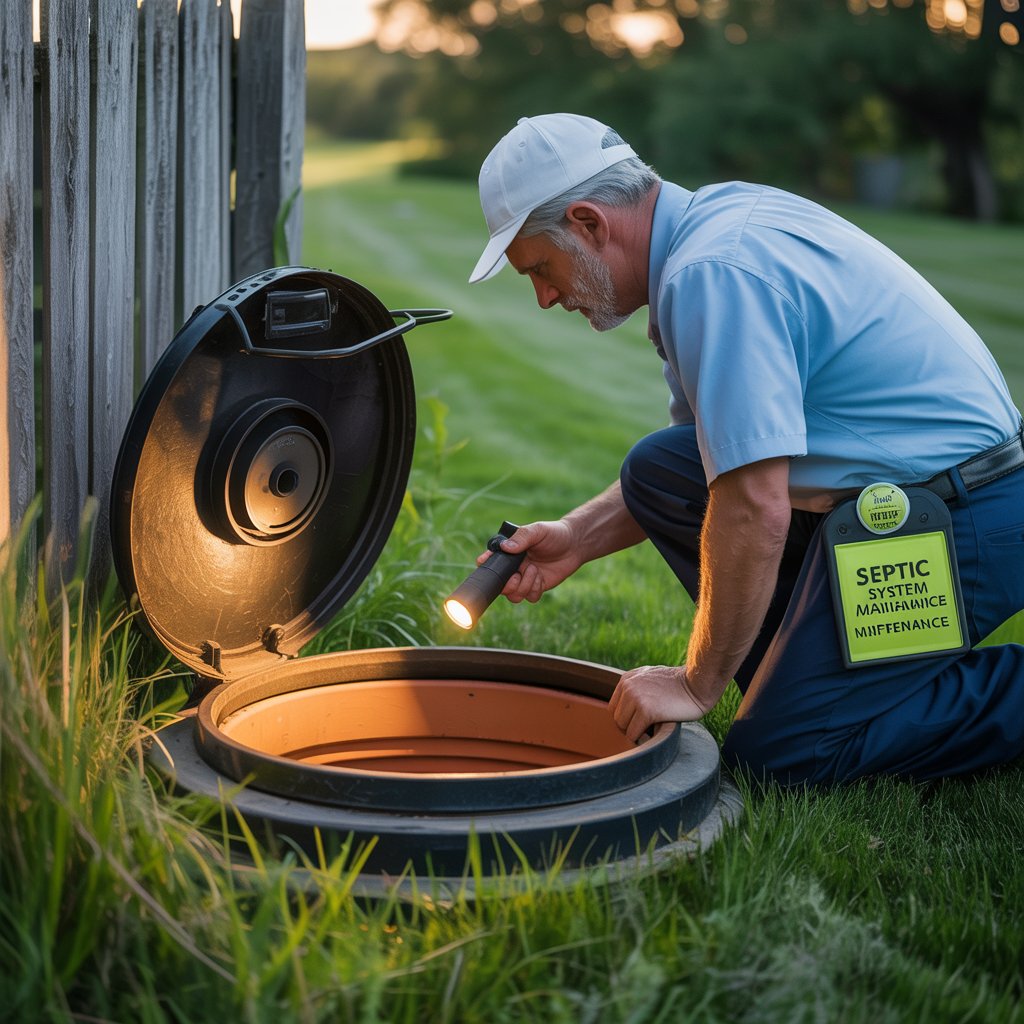The Basics of Septic Systems: How They Work
Septic systems represent the primary wastewater treatment solution for homes located in rural and suburban areas without access to public sewer networks. The standard configuration of these systems includes a septic tank together with a drainage field and the surrounding soil area. Home wastewater enters the septic tank , which allows solids to settle at the bottom and oils and grease to float toward the top. The drain field accepts liquid waste from which the soil removes dangerous contaminants while purifying the water that returns to the environment.
The proper operation of septic systems maintains both clean water quality and intact soil structures. Environmental disasters can result from failing septic systems when they are not properly maintained. Regular septic tank inspections represent a vital maintenance practice that maintains effective system operation and environmental protection.
Why Septic System Maintenance is Key for the Environment
Unattended septic systems that receive no regular inspections or maintenance will leak dangerous waste into their surroundings , which might contaminate groundwater and nearby water bodies, including rivers and lakes. Pathogens and bacteria within untreated wastewater pose dangers to human health while disrupting entire ecological systems. When waste remains untreated, it releases excessive amounts of nitrogen and phosphorus that produce algae blooms, which deplete water oxygen levels and damage aquatic ecosystems.
The majority of rural communities rely on septic systems as their primary wastewater management solution. The failure of septic systems results in untreated waste that seeps into nearby water sources, causing significant pollution. Homeowners who perform regular maintenance inspections can prevent environmental damage by ensuring their septic systems operate correctly according to their design specifications.
The Role of Septic Tank Inspection in Protecting the Environment
The inspection of septic tanks stands as the essential maintenance requirement for septic systems. System maintenance inspections enable the detection of emerging problems before they develop into significant issues. A professional conducts inspections to check tank structures, searching for any cracks or leaks , and ensuring the tank is the correct size and is operating correctly. The inspection includes a drain field assessment to confirm that proper wastewater filtration occurs.
A professional septic tank inspection protects both your wallet from repair costs while guaranteeing that your system does not release dangerous contaminants into the environment. Septic tank failures occur through gradual deterioration , which might manifest through drainage slowdowns and foul odors or yard water accumulation, yet these symptoms frequently remain unnoticed until severe damage occurs. The discovery of system problems at an early stage through regular inspections maintains system efficiency while protecting the environment.
A properly maintained septic system under regular inspection maintains proper waste treatment and filtration until environmental entry. Adequate maintenance of septic systems protects both human and wildlife access to clean water supplies, which creates healthier ecosystems and communities.
What is the recommended schedule for septic system inspections?
The regularity of septic tank inspections depends on household size, wastewater generation levels , and the age of the septic system installation. The typical inspection period for septic systems should occur every three to five years. Regular inspections become more necessary when your system reaches an advanced age or your household size increases.
The cost of septic tank inspections remains minimal, yet they protect your money from costly repairs and environmental harm. The technician examines both sludge and scum levels during the inspection to determine if tank pumping is required. Inspections conducted at regular intervals allow you to detect minor problems so you can take corrective action before a environmental harm occurs.
Other Steps to Ensure Your Septic System Is Eco-Friendly
Homeowners must take additional measures to maintain their septic system’s environmental sustainability, in addition to regular inspections.
- Reducing water consumption decreases the pressure on your septic system. The efficiency of your septic system depends on fixing leaks while using low-flow faucets and showerheads, and operating washing machines and dishwashers with complete loads to save water.
- The waste management in your septic tank remains healthy when you refrain from flushing harmful cleaning products and solvents, along with antibiotics, because these chemicals disrupt the bacterial ecosystem. The bacteria inside your septic tank perform waste decomposition functions, so using green, non-hazardous cleaning solutions remains essential.
- The system requires proper handling to prevent it from being overwhelmed with excessive materials. The only permitted waste for toilet disposal includes human waste , together with toilet paper. The drain system becomes clogged when you flush wipes, sanitary products , and paper towels because these items cause expensive damage and environmental harm.
- The drain field requires regular maintenance from the homeowner. You should keep both vehicles and trees at least a certain distance from the drain field to maintain its proper operation.
The Long-Term Benefits of Proper Septic System Care
The practice of proper septic system maintenance offers multiple advantages to homeowners beyond environmental protection. A septic system that receives adequate care can operate for many decades, thus avoiding both maintenance expenses and replacement costs. A combination of routine inspections and appropriate pumping and cleaning operations will help your septic system last longer while maintaining its optimal functionality.
Proper septic system maintenance protects your home value at the same time. When you plan to sell your house, future buyers will find a well-functioning septic system to be an advantageous selling point. A failed septic system drives away potential buyers while forcing homeowners to spend large sums of money for repairs that decrease the market value of their property.
The care you provide to your septic system contributes to environmental protection.
Regular septic system maintenance stands as an essential practice for protecting both your family’s health and environmental well-being.
Regular septic system inspections , combined with responsible usage, will lead to cleaner water sources and sustainable ecosystems , while creating a better future for every community.




